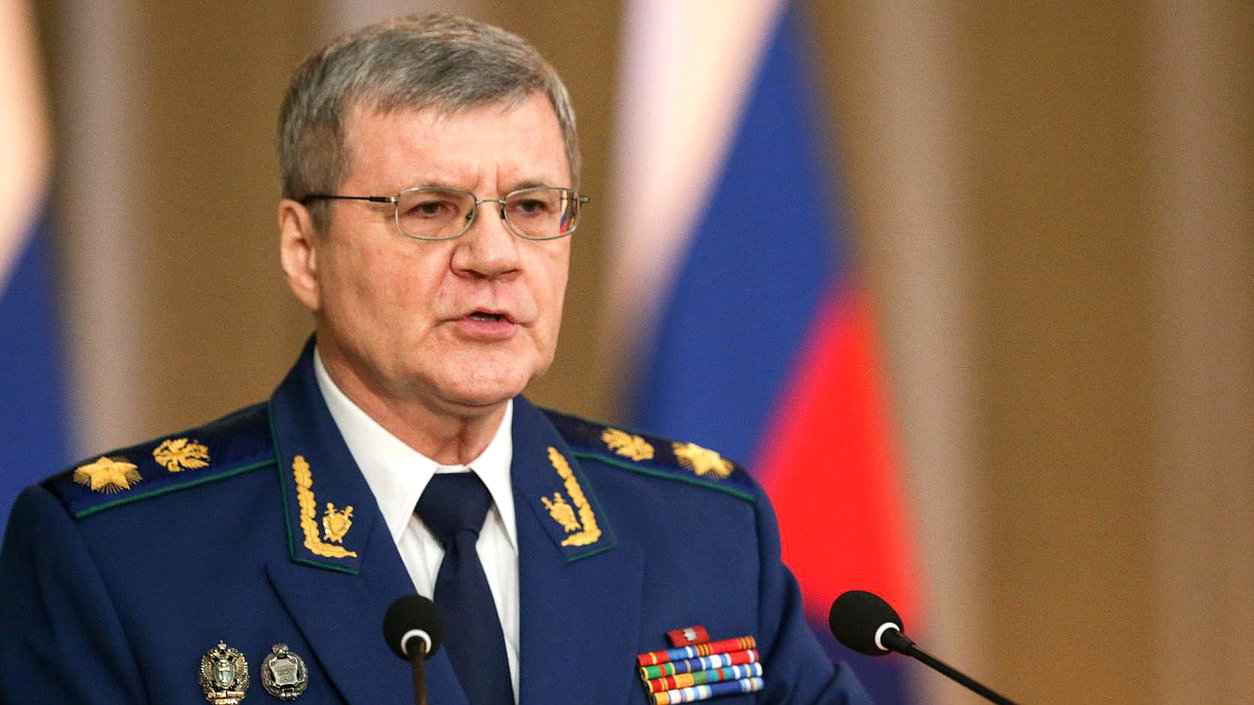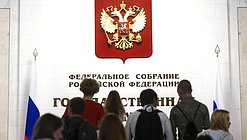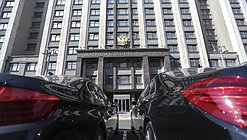
The Constitutional Court consists of 19 judges. As requested by the President, the Federation Council, the State Duma, one-fifth of the members of the Federation Council or deputies of the State Duma, the Government, the Supreme Court, the legislative and executive bodies of the constituent entities (regions) of the Russian Federation it interprets the Constitution and resolves cases of compliance with the Constitution of the following:
a) federal laws, acts of the President, the Federation Council, the State Duma, and the Government;
b) Constitutions of the republics, charters, as well as laws and other regulatory acts of the constituent entities of the Russian Federation, issued on matters relating to their competence;
c) agreements between state authorities of the Russian Federation and state authorities of the constituent entities of the Russian Federation, agreements between state authorities of the regions of the Russian Federation;
d) international agreements that have not entered into force.
The Constitutional Court resolves disputes about competence: between federal bodies of state power, between bodies of state power of the Russian Federation and bodies of state power of regions of the Russian Federation, and between the highest bodies of state power of regions of the Russian Federation.
In addition, upon complaints of violation of citizens’ constitutional rights and freedoms and at the request of the courts, it checks the constitutionality of the law applied in a particular case.
See also
The Supreme Court of the Russian Federation is the highest judicial body in the resolution of economic disputes and in civil, criminal, administrative and other matters that are within the jurisdiction of courts established in accordance with federal constitutional law. It exercises judicial review of the activities of the abovementioned courts and provides explanations on matters of judicial practice.
In July 2018, the State Duma adopted a law on the creation of separate cassation and appeal courts of general jurisdiction in Russia. In accordance with this law, 5 appeal and 9 cassation courts of general jurisdiction, which will operate within the respective judicial districts, are to be created. The law provides for the review of appeals and cassation complaints by another court, not the one that considered the case as the first instance. This will ensure the independence of the courts and reduce corruption risks and regional influence.
The law of 1998 introduced the institution of “justices of the peace” who consider minor cases as the first instance (e.g., divorce in the absence of a dispute about children, criminal cases for which the punishment does not exceed three years, etc.).
Citizens of the Russian Federation who are over 25 and have a law degree and legal work experience for at least five years may become judges. Judges are independent, irremovable, immune and subject only to the Constitution.
The prosecutor’s office is not part of the judicial system and is independent of all branches of power. The Prosecutor’s Office system is headed by the Prosecutor General’s Office of the Russian Federation, led by the Prosecutor General. He (she) is nominated by the President and appointed by the Federation Council.


